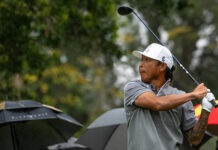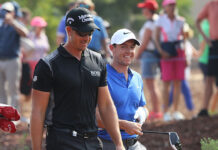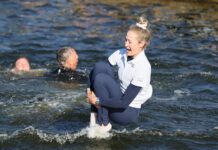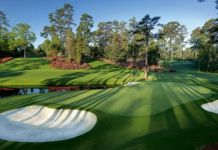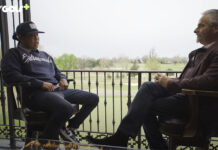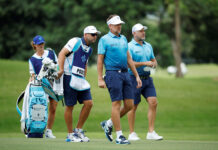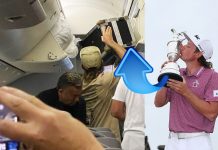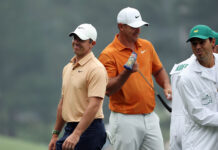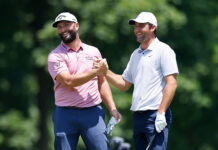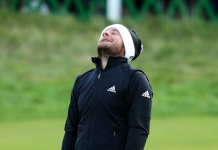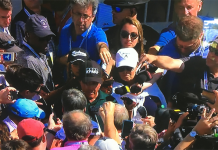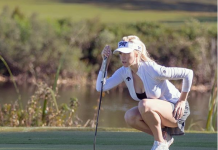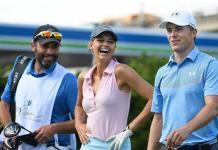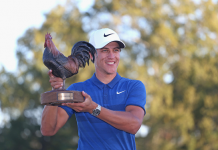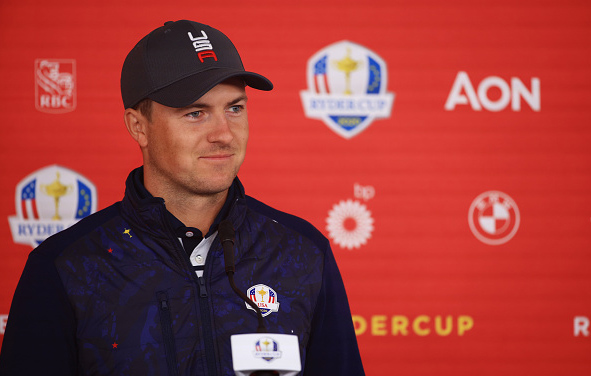
Amidst shocking struggles from 2018-2020, it looked like Jordan Spieth would be a longshot to make the 2021 Ryder Cup squad, despite a tremendous history in the event.
Fortunately for the 28-year-old three-time major champion, Spieth rediscovered his game this season with nine top-10s, including a win at the Valero Texas Open, two runner-ups, and two other third place finishes.
He was solo runner-up to Collin Morikawa at The Open Championship and was T3 at The Masters. He has not missed a cut on Tour since January.
Spieth did not make the team on points, but was among the easiest decisions for Captain Stricker.
The Texan sat down with the media on Tuesday and took some questions. Here are four we liked most.
1.) Ryder Cup First Tee
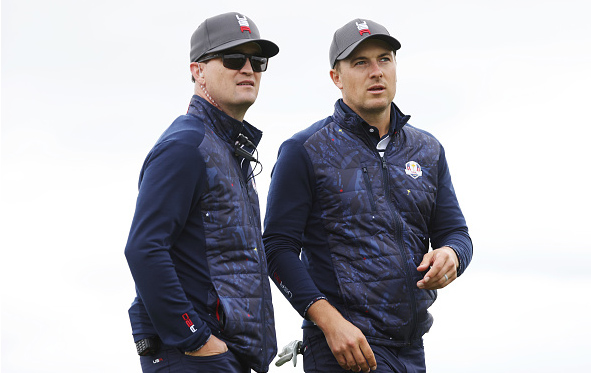
Question: I know you don’t like to use the term or refer to them as rookies on the team, but if any of them came up to you this week and asked you to explain the atmosphere on the first tee or how to handle that pressure, what would you tell them?
JORDAN SPIETH: Well, I already kind of have to a couple of the guys. I’ve asked some of the assistants and even some of the other players just so that I was kind of on the same page. But I asked them kind of what it feels like in the middle of a match to them, what do you compare it to. Most everybody has said it feels like you’re in contention in a big tournament or a major championship each match.
What I would say is, one, it’s more of the adrenaline rush than the nerves. Like it’s more of an exciting version of that than it is a nervy version of that, and embrace that because you don’t really get that opportunity but once every couple years.
And then two, given that, you get to learn a lot from this event. You learn what you do well, but then like this tournament has propelled me into really good seasons the next seasons after I’ve played, given you get that kind of experience all — maybe it takes two or three years if you’re playing really well to have four or five times you’re in contention in a major, but you get to do it three, four, five times this week.
So embrace that. Again, it’s more of an adrenaline rush than it is a nervy feeling, but that’s what it’s compared to in my opinion.
2.) Team Getaway & Ping Pong
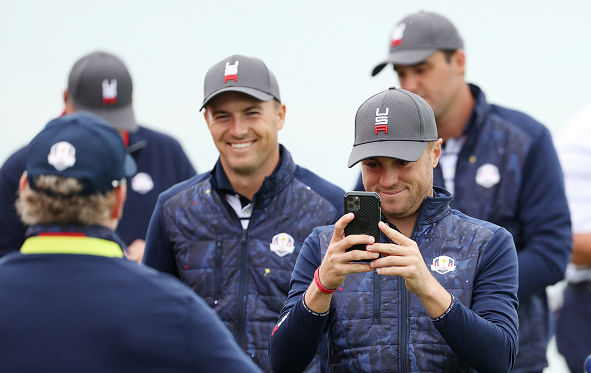
Question: What benefit if any do you think the whole team coming here ahead of time, what was the benefit of that? And secondly, who’s the best ping-pong player on this team?
JORDAN SPIETH: I was curious ahead of time, to be honest, about how it would be, and I thought it was extremely beneficial. I thought the commitment of guys to get up here was cool. It was very light. We were messing around. We were hitting shots. We weren’t really like chipping and putting to all the pins. It was more let’s have some fun and play a match with each other and just kind of see — get our feet on the ground, see the grandstands, see the setting ahead of time so that when we arrive today, you’re not kind of taken aback. You’ve already been here. Feels just that little bit more comfortable.
We haven’t — we’ve only been here one night. I think everybody was kind of getting settled. I think Bryson and Berger were the only two that played, and I think Berger bested Bryson. I don’t know how it ended up for the night, but I think he got him at least the first two matches.
3.) Whistling Straits

Question: Granted we’re playing next to a lake and not an ocean and the rough won’t be super long, but visually there are some similarities between this and some courses overseas. You mentioned having to flight it in the wind and using some slopes. Where do you put this course on the continuum of Hazeltine or Valhalla, like an Open Championship layout? Where does it rank?
JORDAN SPIETH: Yeah, it’s an American links, isn’t it? It’s played from the air, though. You’re not bouncing balls up to these greens. It’s played from the air, but you also have to hit shots versus driving range shots.
You have uneven lies that you have to work maybe against them or with them, hold winds, ride winds. I think it’s an American links. I don’t think that — I mean, we had Americans finish one-two at the Open Championship this year. I don’t really think that it makes that much of a difference on the style of course.
I think our team, our captains, Strick and the vice captains, are trying to figure out ways that maybe fit the players specifically on our team as far as rough cuts and fairway cuts, where they are, and green speeds and firmness and that kind of stuff.
It’s an aerial links, so you still have to play very similar golf to what we experience on the PGA TOUR for the most part.
4. Team USA Pairings
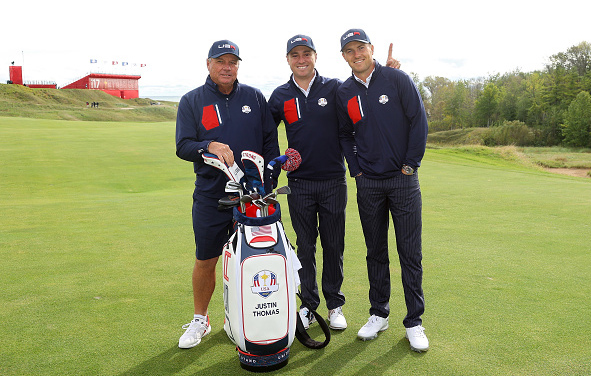
Question: You and Patrick have been the most frequent partnership in a Ryder Cup. I don’t know if you’re aware of that or not. Does that surprise you, and is that possibly one of the maybe problems that has affected the U.S., that over all the years there hasn’t been more frequent partnerships finding a recipe and sticking with it?
JORDAN SPIETH: I would have thought maybe Bubba and Webb, but yeah, it’s interesting. I don’t necessarily think so. I think especially with this team with the amount of first-time Ryder Cup players, it’s hard to call guys rookies here given the experience they have on the world’s biggest stage in golf, so I don’t really like using that term for these guys.
It’s a wave where I was talking with Justin about it. We’ve known everyone on this team since grade school except for Dustin and Tony. I mean, it’s pretty special. So you have a camaraderie. It’s kind of more like a really light setting. Guys have known each other for a long time.
So I think that statistic to answer your question will probably start to not be the case going forward. I think you’ll start to see some pairings that guys find a lot of success in and continue for a number of years given the average age and the caliber of players that are on this team.


